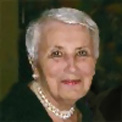
|
From now on I hope to always educate myself as best I can. But lacking this, in the future I will relaxedly turn back to my secret mind and see what it has observed when I thought I was sitting this one out. We never sit anything out. We are cups constantly and quietly being filled. The trick is, knowing when to tip ourselves over and let the beautiful stuff out. - Ray Bradbury
The French have gone now. And since the Algerian independence in 1963, its French name has been changed to the Arabic "Bedjaia." But in the late-twenties, when the tricolor was still flying atop every flagpole of that lovely little town that nestles at the foot of the mountains, thus reflecting in the Mediterranean, it was still called "Bougie" (pronounced boogee), and I was born there. Those were the days before la nuit colonial, the dark nights before the dawn of the Arab liberation and what was fated to be the last few remaining decades of my own people's colonial days. Now Bedjaia is changing, inasmuch as it has been propelled with the rest of Algeria into the jet age. As its government tries to blend eleventhcentury Islamic traditions with twentieth-century socialism, my old hometown is now achieving stature. It has become a port, which my father helped to build in 1927, for the supertanker in whose bowels the oil coming from the Sahara becomes precious cargo. It is taken to its expensive destinations all over the world. Changes were rapid not only in Bedjaia, but all over Algeria. The French presence that lasted for over one hundred and thirty-two years is all but eradicated, along with the forgotten streets and town names. And sadly, with it will go the remaining ghosts of what had been six generations of the Lamberts, my mother Rose's family. But I still have a few memories, a few souvenirs of my own too short years in intriguing Algiers. That was long ago, but nevertheless I still recall much, some painful, like the servitude that kept me working in my parents' café, some twelve hours a day, seven days a week-for they never closed-that still added up to no pay. They didn't pay themselves, so why would they have paid me? But still, and this is what made it all worthwhile, all the money they could have given me would not have been as precious as what they taught me! For indeed from them I learned many things, such as tolerance, love and help of one's neighbors, and a strength of character shown by courage, both physical and moral, for these qualities were demonstrated to me not by words, but by deeds, in everything they did. During the war for instance, I saw my father give his one remaining good shirt to a vagrant he had never seen before. As well, there were the countless times when my mother went out in the middle of the night to attend to a sick child with the contagious typhoid fever or meningitis. But I am getting ahead of my story. So let me start at the beginning. This I must do with Salvador, for unlike my mother Rose, who was closed as a clam about her past life before she married Dad, he had many stories to tell and was only too happy to regale his family after Sunday dinner, when, long before television or even radio, storytelling was a pastime enjoyed by both the raconteur and his listeners. In Salvador's case, it usually started when one of the children would ask, "Please, Papa, tell us about the time in the restaurant in Bougie when the four Arabs came in, and one of them had a razor!" (He loved that one.) But the next best story was one about his army days in Germany and "the farmer's daughter." |
|---|
